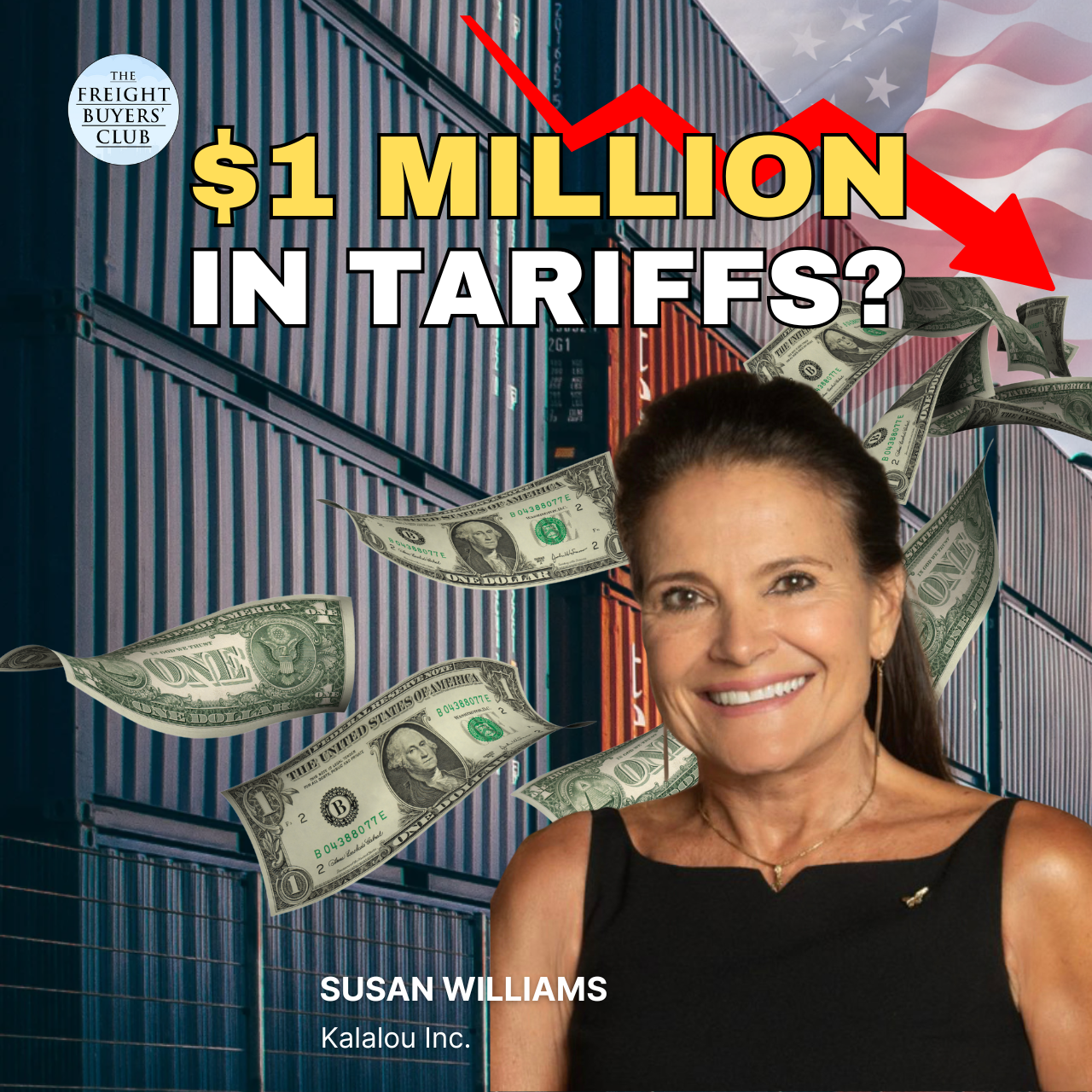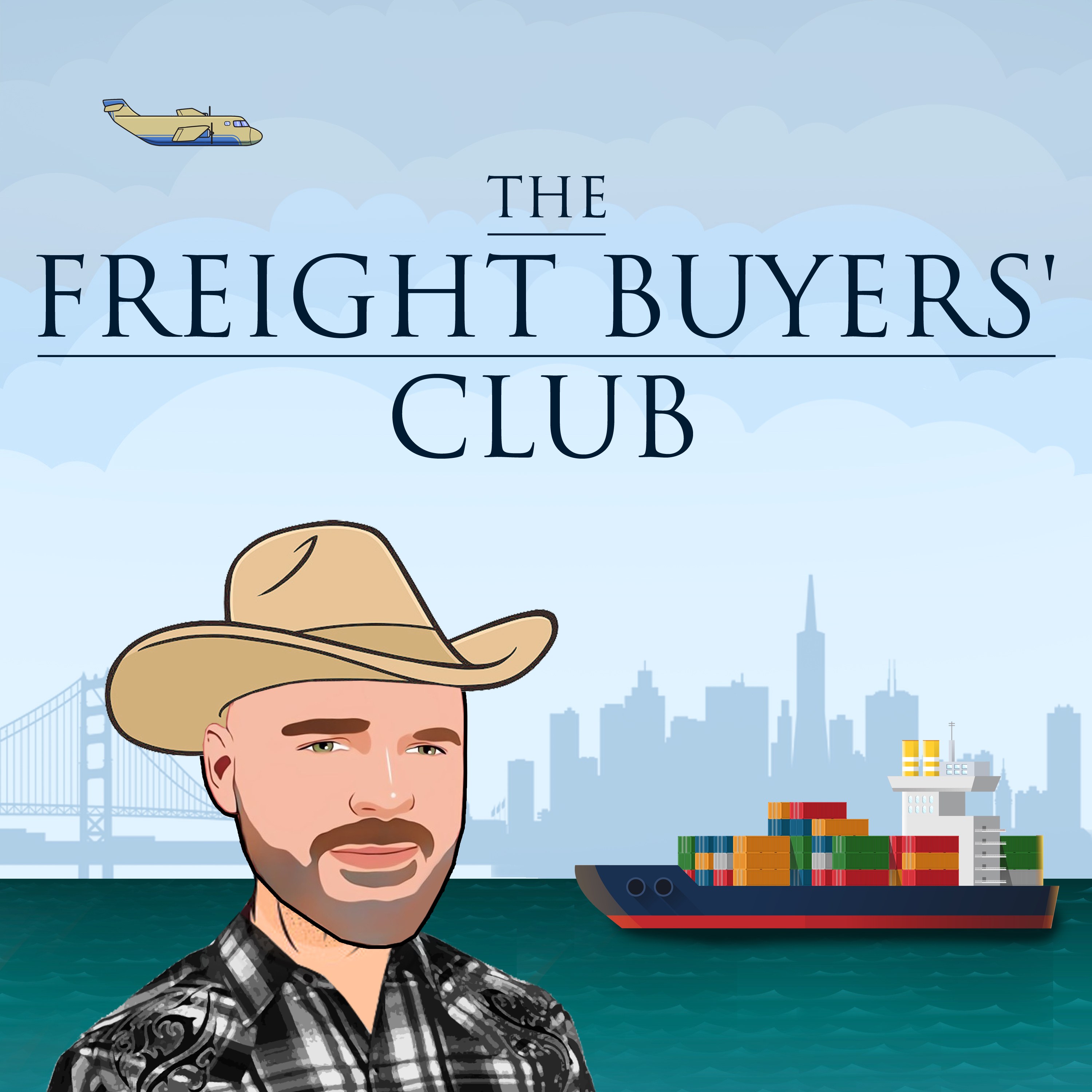Episode Transcript
[00:00:03] Speaker A: Doctor Noel Hachigaba, Chief Operating Officer at the Port of Long Beach. Welcome back to the Freight Buyers Club. Good to see you again.
[00:00:10] Speaker B: Thanks Mike. It's always a pleasure to join you. Thanks for having me.
[00:00:13] Speaker A: I think congratulations are in order.
It seems like the shipping tap to Long beach from Asia is now back open.
I presume you're still expecting a quiet few weeks due to all the blank sailings that were already booked in. But then maybe are we looking at a surge of traffic as importers try to bring everything in that they can during this US China tariff truce?
[00:00:36] Speaker B: Well, we're certainly encouraged by the news coming out of the weekend in Geneva between the US And China and the framework for a possible accord. We are cautiously optimistic. But we also recognize that it takes about 30 to 45 days for shippers to resource product and adjust our supply chain. So even in spite of this announcement that we hope materializes and brings some stability to the to the supply chain, we are still anticipating a slower May and possibly a slower June. Maybe not as slow as we first thought, but we think that 30 to 45 days post announcement over this past weekend before we start seeing a pickup again on our cardiovascular.
[00:01:22] Speaker A: How aggressive are you expecting that pickup to be? Is this sort of going to look like a surging slightly early peak season? Is that what we're talking about?
[00:01:31] Speaker B: Well, I think it's important to recognize first that China by itself accounts for about 60% of our total volumes here. So it's a disproportionate impact anytime there are cargo swings one way or the other. But I would say that a 90 day pause while it gives everyone some certainty for the next three months, it nonetheless sets up an artificial barrier. So we do anticipate shippers to try to take advantage of this ponds and try to do some more front loading, specifically holiday product that typically comes at the end of summer, early fall. So we do anticipate a run up in cargo and we are certainly in touch with every partner in our supply chain to make sure that we can handle that surge when it comes.
[00:02:16] Speaker A: How bad was the situation looking before this deal was agreed?
[00:02:20] Speaker B: It was looking pretty dire prior to this weekend's announcement. For the month of May, we were looking at a 30% drop year over year just for the month of May. That's about 400,000 TEU. And just to put that in perspective Mike, in the month of April we held 865,000 TEU. So that's about 46% of what we handled in the month of April. That we thought we would be down in May and that was directly a result of the blank sailings and you know, the ships from China that came all the way down to zero making their way here to La Long Beach. So this news and this announcement over the weekend could be a game changer. It gives everyone some relief and it gives everyone at least some near term certainty about what tariffs and what the tariff environment is going to look like. But again, it also sets up an artificial deadline and we do expect shippers to do some more front loading and try to get their shipments in ahead of that 90 day pause termination period.
[00:03:29] Speaker A: What's the sense been around the port or maybe more generally about what does this mean for us consumers, for the dock workers at the port, the drayage operators, forwarders, hauliers that rely on the port for business. They must be feeling very happy today. Even as you say this is still going to be an artificial window. We still have a lot of uncertainty ahead, but it's still a good day for the port.
[00:03:50] Speaker B: It is. We are cautiously optimistic that this is the first in a series of steps that will bring some stability between the world's two largest economies and our largest trade partner by volume. What we're hearing from the trade community is a lot of relief that the de escalation is in our midst. A lot of relief that there's a framework and a path forward for the two largest economies to hash things out and reach a resolution as quickly as possible.
And we're also seeing a glimmer of hope as our dock workers who were most vocal about the impacts of jobs, I mean just in the last couple of weeks they were already sustaining job losses to the tune of 200.
That is something that has an immediate impact not just to our port, Mike, but to our communities. You know, almost half of the workforce that supports port operations lives within 10 miles of the port complex. So you can imagine the cascading effect, that knock on effect when folks don't go to work, when they don't earn that paycheck. It has a trickle down effect. And that was, that's what we were most concerned about. On the trucking side, truck drivers that were used to hauling four or five containers a day were reduced to two or three, in some, in some cases zero. And they make their living based on the load.
So you can imagine again the dire consequences for those workers whose prospects of pulling out containers out of our port complex were greatly diminished. So we do see this announcement coming out of the weekend as an encouraging sign. And we're hopeful that China and the United States will reach a resolution and provide the stability that we're all clamoring for so that we can continue to support our local, regional and national economy.
[00:05:39] Speaker A: Do you have any concerns at all that you might see? There's been all this, all these shipments have been on pause. Have you got any concerns that it might all come together and we might have poor congestion and any other issues at Long beach or la?
[00:05:53] Speaker B: We learned many lessons during the COVID supply chain crisis. I think at that point in time we were all forced to learn how to work together. And I can tell you that when you look at our experience over the last year, in calendar year 2024, we actually handled more cargo volume than we did during the supply chain crisis peak.
But it happened without any congestion, any backlogs, any delays. I think we figured out how to be resilient, how to flex everyone up and down the supply chain. Mike is working better together. We're sharing data, we're sharing information more seamlessly, it's more routine. So I'm very confident that as we look at a possible run up of cargo in light of this 90 day pause, that we'll be ready to handle that cargo without any congestion, any delays or any disruption.
[00:06:47] Speaker A: Dr. Noel Hachigaba, Chief Operating Officer at the Port of Long Beach. Thanks very much for taking the time on your very busy day today. Yeah. To speak to the Freight Buyers Club.
[00:06:57] Speaker B: My pleasure. Thanks again, Mike.


